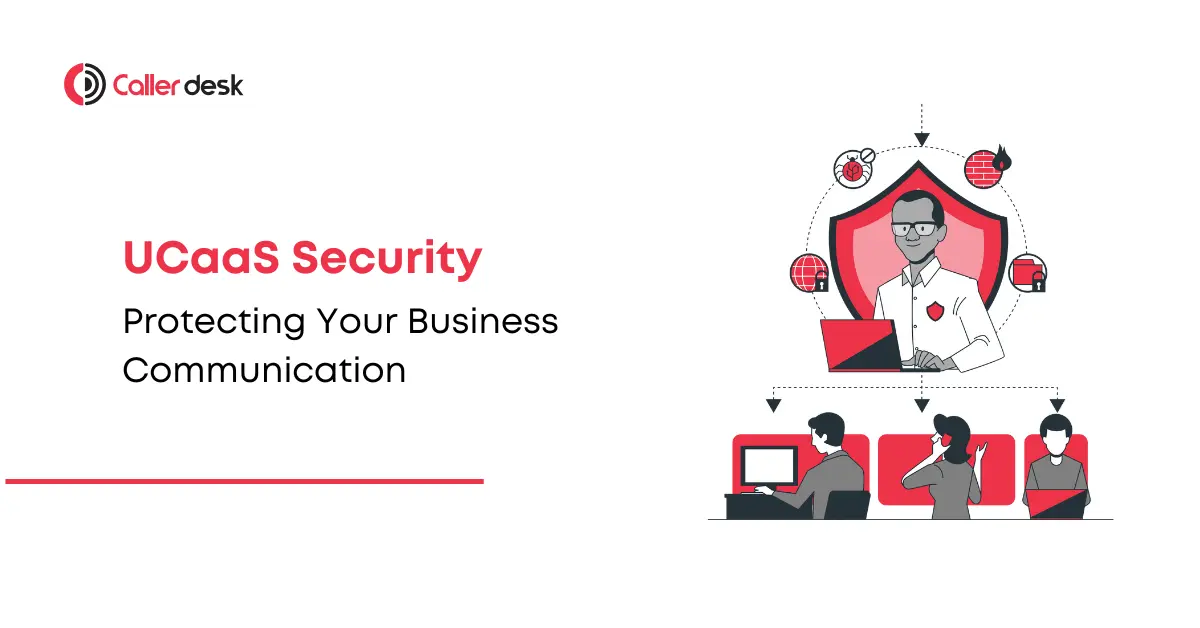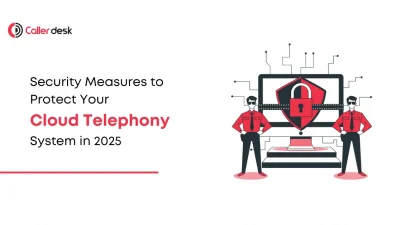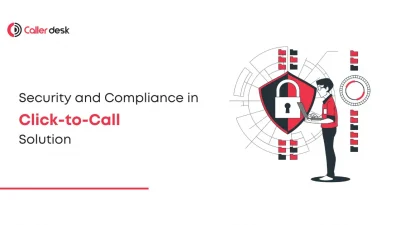Is your business communication secure enough to stand up against modern cyber threats? As businesses adopt Unified Communications as a Service (UCaaS) to integrate voice, video, messaging, and collaboration tools, security becomes more critical than ever.
While UCaaS boosts productivity and efficiency, a lack of proper security measures could leave your sensitive business data vulnerable to cyberattacks. This guide takes a deeper dive into UCaaS security, exploring advanced encryption algorithms, security protocols, real-world examples, and emerging threats to help you safeguard your communications.
Why Does UCaaS Security Require Enhanced Measures?
1. Sensitive Data Risks
UCaaS systems handle large amounts of sensitive data—client communications, financial records, and internal strategies. Without encryption and access controls, cybercriminals can exploit this information for financial gain or corporate espionage.
2. Unauthorized Access
Hackers can gain access to UCaaS accounts, allowing them to intercept calls, read messages, and manipulate data. Multi-factor authentication (MFA) and access control policies are essential to prevent breaches.
3. Regulatory Compliance
Organizations in industries like healthcare, finance, and legal services must adhere to strict data protection laws such as GDPR, HIPAA, and CCPA. A security lapse can result in hefty fines, lawsuits, and loss of trust.
A Closer Look at Essential UCaaS Security Elements
1. Encryption Algorithms in UCaaS
UCaaS platforms use advanced encryption algorithms to protect data in transit and at rest.
- AES-256 Encryption (Advanced Encryption Standard): AES-256 is the industry gold standard for securing data due to its high resistance to brute-force attacks. It is widely used to encrypt VoIP calls, messages, and video streams.
- RSA (Rivest-Shamir-Adleman): RSA is often used to secure the exchange of encryption keys between parties during communication sessions.
By combining AES for data encryption and RSA for key exchange, UCaaS ensures multi-layered security across all channels.
2. Security Protocols
Protocols play a vital role in securing communication within UCaaS platforms.
- TLS (Transport Layer Security): TLS encrypts communication channels between devices and servers to ensure data remains confidential and tamper-proof.
- SRTP (Secure Real-time Transport Protocol): SRTP encrypts voice and video communications, preventing unauthorized interception during live streams.
These protocols work together to protect UCaaS systems from eavesdropping and tampering.
3. The Zero-Trust Security Model
The Zero-Trust model is gaining traction for UCaaS security. Unlike traditional models that assume trust within internal networks, Zero-Trust enforces the principle of “never trust, always verify”.
- Continuous Verification: Every user and device accessing the UCaaS platform is verified in real-time.
- Least Privilege Access: Users are granted only the permissions necessary for their role.
- Micro-Segmentation: Communication is segmented, reducing the attack surface and containing breaches if they occur.
By implementing Zero-Trust in UCaaS, businesses can better protect sensitive communications against insider threats and external attacks.
Real-World Examples and Case Studies
1. Successful UCaaS Security Implementation
A financial firm implemented a UCaaS platform with end-to-end encryption, multi-factor authentication, and RBAC to comply with GDPR and CCPA. As a result:
- Unauthorized access attempts dropped by 45%.
- Internal communications became fully compliant with data protection laws.
- Clients reported increased confidence in the firm’s security practices.
2. Real-World UCaaS Breach
In 2021, a major UCaaS provider faced a security breach due to weak password policies and unpatched software vulnerabilities. Hackers intercepted sensitive client communications, causing severe financial and reputational damage.
Lesson Learned: Businesses must enforce strong password policies, conduct regular security audits, and apply timely software updates to prevent breaches.
Emerging Trends and Future Threats
1. AI and Machine Learning in UCaaS Security
Artificial Intelligence (AI) and Machine Learning (ML) are transforming UCaaS security:
- Anomaly Detection: AI tools analyze communication patterns to detect suspicious behavior in real-time, such as unusual login locations or abnormal data transfers.
- Threat Prediction: Machine learning algorithms predict and mitigate potential threats before they materialize.
2. Quantum Computing and UCaaS Security
While quantum computing promises advancements in technology, it also poses a threat to encryption algorithms like RSA. Post-quantum cryptography will play a key role in securing UCaaS platforms against quantum-based decryption.
Future-Proofing Tip: Businesses should choose UCaaS providers that are investing in quantum-safe encryption technologies.
Simplified Tips for UCaaS Security
1. Choose a Secure UCaaS Provider
- Ensure they offer end-to-end encryption, multi-factor authentication, and compliance with regulations like GDPR and HIPAA.
- Ask about their uptime guarantees and security incident response plans.
2. Use Strong Password Policies
- Enforce complex, unique passwords for all users.
- Implement multi-factor authentication to add an extra layer of security.
3. Educate Your Employees
- Train staff to recognize phishing emails and other common cyber threats.
- Encourage regular updates of passwords and software.
4. Conduct Regular Security Audits
- Audit UCaaS systems for vulnerabilities, access permissions, and encryption settings.
- Partner with cybersecurity experts to stay ahead of evolving threats.
Conclusion
UCaaS security is no longer just a technical requirement—it’s a strategic necessity. By implementing advanced encryption, adopting a Zero-Trust security model, and leveraging AI for threat detection, businesses can protect sensitive data, ensure compliance, and foster trust with clients.
The future of UCaaS security will involve preparing for quantum threats and leveraging AI-powered tools to stay ahead of evolving cyberattacks. By taking proactive steps to secure your UCaaS platform today, you empower your team to communicate confidently and focus on driving business growth.
Secure, reliable communication isn’t just about protecting data—it’s about enabling your business to thrive in the digital age.





